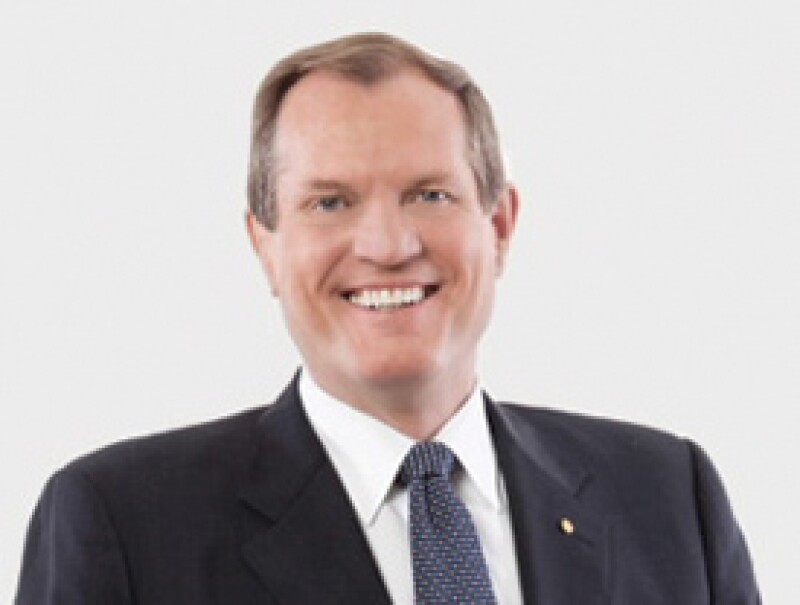
|
Climbing Mount Kilimanjaro or reforming the Australian Tax Office (ATO)? For Chris Jordan, both can be conquered. Jordan stepped in as head of the ATO in January 2013 after a three decade career in the private sector. Just two years into office, he has been quick to introduce reforms and modernise Australia's tax system and, in his spare time, trek in exotic places around the world. Jordan holds no illusions about the public's opinion of the tax office: "I think historically the thought may be it's a bit scary at times," he said in an interview with The Bottom Line, an Australian media company for CPAs.
"My wife gave me this great analogy. It's a little bit like going to the dentist – you really don't want to do it, but you know at some point in time, you have to," said Jordan. "The challenge you face is to make interactions with the tax office infrequent, quick and painless, and I think that does sum up a lot of the strategy that we're now rolling out."
Jordan said that while stepping into his new role, he found the ATO was open to the changes he was eager to introduce. "It [the ATO] has been pretty effective but there were clear areas that could be improved."
Though the office cut 3,000 jobs early in the year, Jordan has promised that collections would not be "materially affected".
Jordan's reforms have received positive reviews from tax professionals. Australia has also been a force in the region, helping train tax officials from China, Papua New Guinea and Indonesia to audit and identify potentially abusive tax structures.
Jordan has focused much of his attention on identifying abusive tax schemes that funnel income out of Australia. In August, he discussed the topic with business owners at the Council of Small Business of Australia's 12th National Small Business Summit in Melbourne. "When you talk about mere technical ownership of some property residing in a tax haven, say Bermuda or the Cayman Islands, and billions of dollars of profits a year end up there, you sort of think: 'Is that right?'," said Jordan. "I think there is becoming a general recognition that that's probably just not right."
"Something needs to change when you have large companies doing business in Australia and claiming that the country has no taxing rights at all, notwithstanding that a large amount of business is actually being carried on in the country," Jordan said.
Jordan has targeted multinational corporations and has helped Australia develop sophisticated transfer pricing laws. He was quick to act when the Luxembourg Leaks implicated hundreds of Australian taxpayers for shirking tax through structures in Luxembourg.
In November, Jordan told the Australian Financial Review that the tax office had identified abusive tax structures as a partial result of the leaks. "I have no doubt that we will have some disputes arising out of the course of next year," said Jordan. "We're very confident that this will bear fruit. It's definitely worth the investment, I'll put it that way."
Australia's presidency of the G20 forum in 2014 proved to be an excellent time for Jordan to continue his reforms. In November immediately following G20, Jordan hosted the 44th Study Group on Asian Tax Administration and Research which comprises 17 member nations. The forum created a regional tax task force and facilitated conversations between tax leaders to share best practices and improve exchange of information – including the promise to aid less developed countries to recognise abusive tax structures.
Further reading |
| Australia Responds to Luxembourg Tax Deal Claims 17 Asian countries meet in Australia to create a new regional tax task force |
The Global Tax 50 2014 |
||
|---|---|---|
| Gold tier (ranked in order of influence) 1. Jean-Claude Juncker 2. Pascal Saint-Amans 3. Donato Raponi 4. ICIJ 5. Jacob Lew 6. George Osborne 7. Jun Wang 8. Inverting pharmaceuticals 9. Rished Bade 10. Will Morris Silver tier (in alphabetic order) Joaquín Almunia • Apple • Justice Patrick Boyle • CTPA • Joe Hockey • IMF • Arun Jaitley • Marius Kohl • Tizhong Liao • Kosie Louw • Pierre Moscovici • Michael Noonan • Wolfgang Schäuble • Algirdas Šemeta • Robert Stack Bronze tier (in alphabetic order) Shinzo Abe • Alberto Arenas • Piet Battiau • Monica Bhatia • Bitcoin • Bono • Warren Buffett • ECJ Translators • Eurodad • Hungarian protestors • Indian Special Investigation Team (SIT) • Chris Jordan • Armando Lara Yaffar • McKesson • Patrick Odier • OECD printing facilities • Pier Carlo Padoan • Mariano Rajoy • Najib Razak • Alex Salmond • Skandia • Tax Justice Network • Edward Troup • Margrethe Vestager • Heinz Zourek |
||









